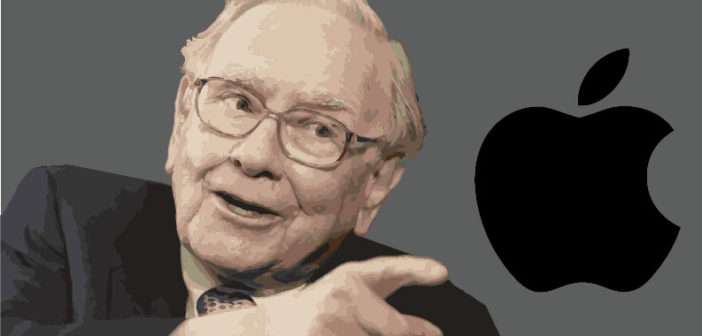When Warren Buffett, one of the most revered investors of our time, makes a significant move in the stock market, the world takes notice. Recently, Buffett’s decision to sell a large portion of Berkshire Hathaway’s Apple holdings has sparked curiosity and debate among investors and financial analysts. In this blog post, we’ll explore the reasons behind this decision, delve into Apple’s financials, and provide a valuation based on our analysis

Warren Buffett’s Apple Sell-Off: What’s Behind the Decision?
In the last quarter of 2023, Buffett began trimming his Apple position, citing concerns about potential corporate tax increases in the U.S. While initially, this reduction seemed minor, Buffett has since drastically reduced Berkshire Hathaway’s Apple shares by 55%, from 95 million shares in December 2023 to 40 million shares. This raises the question: why is Buffett, who has famously praised Apple, selling such a significant portion of his stake?
A Shift in Strategy: Cash is King
One clue lies in Buffett’s increasing preference for short-term treasury bills, which now outpace the holdings of even the Federal Reserve. With yields around 5%, Buffett is stockpiling cash, suggesting he anticipates potential market turbulence or is waiting for more favorable investment opportunities. This move is not unprecedented for Buffett, who is known to accumulate cash when he believes stock valuations are too high or when he can’t find compelling investment opportunities.
Apple’s Financial Performance: A Closer Look
Apple remains one of the world’s most profitable companies, but a deeper analysis reveals some areas of concern that might have influenced Buffett’s decision:
- Revenue Growth: Apple’s revenue growth has slowed, particularly after 2022, where the company only achieved 8% growth. The higher interest rate environment and a more cautious consumer base are contributing factors.
- Debt Levels: Despite Apple’s robust cash flow, its debt levels have remained relatively stable. Apple has taken on debt, especially during the low-interest-rate environment of the COVID-19 pandemic, often using it for stock buybacks rather than reinvestment in growth initiatives.
- Product Saturation: Apple’s product lines, particularly the iPhone, have reached a saturation point. The incremental updates in new models are less compelling, and the growth rate in this segment is slowing. Even Apple’s services, which have been a significant revenue driver, may be approaching their growth ceiling.
Is Apple Overvalued?
When analyzing Apple’s valuation, several metrics are crucial:
- Price-to-Earnings (P/E) Ratio: Apple’s current P/E ratio is around 29, which is below the tech industry average of 34. However, this doesn’t necessarily mean Apple is undervalued. Given the company’s slower growth and potential for future stagnation, this ratio may be inflated.
- Free Cash Flow Growth: Over the past five years, Apple’s free cash flow growth has averaged around 9.5%. However, recent years have seen this figure stagnate, casting doubt on whether the company can sustain such growth moving forward.
- Projected Growth: Analysts optimistically predict a 20% annual growth rate for Apple over the next five years. Yet, given the current market conditions and Apple’s own performance history, a more conservative estimate would be around 9%, if not lower.
Valuation Analysis: What is Apple Really Worth?
Using a discount rate of 10% and factoring in Apple’s current financials, our analysis suggests that Apple is currently overvalued. With a target buy price of around $84.3 per share, compared to its current price of approximately $209, investors might want to reconsider purchasing Apple at current levels.
Why Buffett is Moving On
Buffett’s decision to sell Apple seems driven by both valuation concerns and strategic portfolio management. Apple, while still a cash-generating giant, may no longer offer the growth potential that once made it a cornerstone of Berkshire Hathaway’s portfolio. By selling now, Buffett is likely locking in significant profits while reallocating capital to more promising opportunities, as signaled by his massive accumulation of treasury bills.
Conclusion
Warren Buffett’s recent moves with Apple should not be seen as a lack of faith in the company but rather a reflection of disciplined investment strategy. Apple’s fundamentals remain strong, but at its current valuation, the stock may not offer the risk-adjusted returns that Buffett seeks. As always, investors should do their due diligence and consider whether Apple’s stock price accurately reflects its future growth prospects.
Want to have more insights? Watch our deep dive valuation on Apple.

